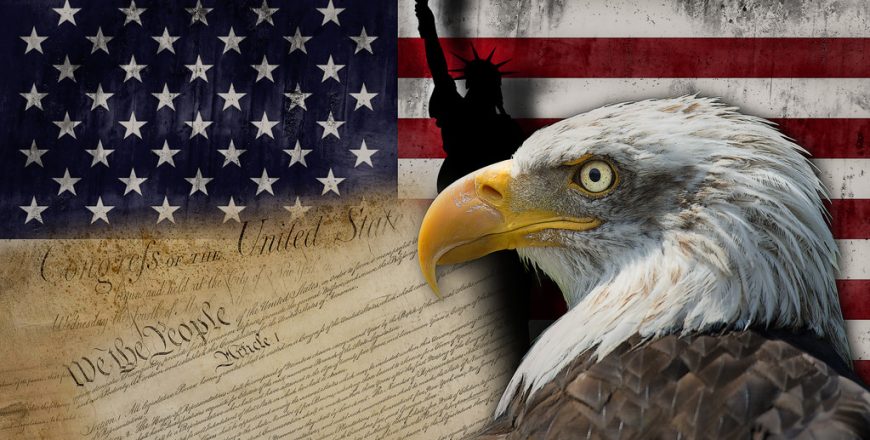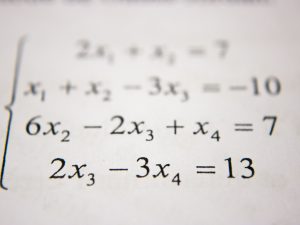
- Description
- Curriculum
- FAQ
- Reviews
In AP U.S. History, students investigate the development of American economics, politics, and culture through historical analysis grounded in primary sources, research, and writing. The equivalent of an introductory college-level course, AP U.S. History prepares students for the AP exam and for further study in history, political science, economics, sociology, and law.
Through the examination of historical themes and the application of historical thinking skills, students learn to connect specific people, places, events, and ideas to the larger trends of U.S. history. Critical-reading activities, feedback-rich instruction, and application-oriented assignments hone students’ ability to reason chronologically, to interpret historical sources, and to construct well-supported historical arguments. Students write throughout the course, responding to primary and secondary sources through journal entries, essays, and visual presentations of historical content. In discussion activities, students respond to the positions of others while staking and defending claims of their own. Robust scaffolding, rigorous instruction, relevant material, and regular opportunities for active learning ensure that students can achieve mastery of the skills necessary to excel on the AP exam.
This course has been authorized by the College Board® to use the AP designation.
*Advanced Placement® and AP® are registered trademarks and/or owned by the College Board, which was not involved in the production of, and does not endorse this product.
Length: Two semesters
-
1Lesson 1: Thinking Like a Historian
- Journal - Can History Be Objective? Compare two different depictions of the same historical figure and write about bias and objectivity in historical interpretation.
- Study - Periods and Themes in U.S. History: Describe historians' use of themes to understand U.S. history and identify the major periods used in AP U.S. History.
- Quiz - Periods and Themes in U.S. History: Take a quiz to assess your understanding of the material.
- Study - Historical Thinking Skills: Periodization: Explain the application of the skill of periodization in chronological reasoning and historical interpretation.
- Quiz - Historical Thinking Skills: Periodization: Take a quiz to assess your understanding of the material.
- Practice - Periodization and Your Life: Construct a timeline of your life events and describe how periodization and themes affect interpretation in historical narrative.
-
2Lesson 2: First Peoples of North America
- Read - First Peoples of North America: Describe pre-contact societies of North America before the arrival of Europeans and the impact of the Columbian Exchange.
- Quiz - First Peoples of North America: Take a quiz to assess your understanding of the material.
- Journal - Perspective in Academic and Oral Histories: Respond in writing to the question "who is best qualified to tell the history of American Indians?"
- Study - First Peoples and the Environment: Explain how interactions with the natural environment shaped the institutions and values of various pre-Columbian groups living on the North American continent prior to and after contact with European settlers.
- Quiz - First Peoples and the Environment: Take a quiz to assess your understanding of the material.
- Study - Making Arguments, Using Evidence: Describe different methods that historians use to construct arguments to study the past.
- Quiz - Making Arguments, Using Evidence: Take a quiz to assess your understanding of the material.
- Practice - North America Before the Columbian Exchange: Write an argumentative essay based on evidence on how European settlers were able to dominate North America.
-
3Lesson 3: European Colonialism in North America
- Read - European Colonialism in North America: Describe how the Protestant Reformation and the growth of mercantilism in Europe led to intensified colonization of North America during the 17th century.
- Quiz - European Colonialism in North America: Take a quiz to assess your understanding of the material.
- Discuss - Status of Indigenous Peoples Today: Compare and discuss significant political, social, economic, and cultural long-term impacts of European colonization on the indigenous peoples of North America.
- Study - Migration and Settlement in Colonial America: Describe how European expansion and colonialism affected the people on both sides of the Atlantic.
- Quiz - Migration and Settlement in Colonial America: Take a quiz to assess your understanding of the material.
- Study - Patterns of Colonization in North America: Explain demographic changes from colonization in North America during the 17th and 18th Centuries.
- Quiz - Patterns of Colonization in North America: Take a quiz to assess your understanding of the material.
- Practice - Assessing Colonial Relations: Write an essay to explain patterns of Indian-settler relations in colonial North America.
-
4Lesson 4: Labor in British Colonial America
- Read - Labor in British Colonial America: Identify and describe the labor systems used in the New England, Middle, Chesapeake, and Southern colonies.
- Quiz - Labor in British Colonial America: Take a quiz to assess your understanding of the material.
- Journal - Primary Sources and Colonial Labor: Analyze three primary sources and write about labor systems in three different American colonies.
- Study - Colonial American Economies: Identify and describe how colonial economies developed and integrated into the British-American slave economy.
- Quiz - Colonial American Economies: Take a quiz to assess your understanding of the material.
- Study - Comparing Regional Labor Systems: Understand the factors that led to the use of slavery and other labor systems in the regional economies of the British colonies.
- Quiz - Comparing Regional Labor Systems: Take a quiz to assess your understanding of the material.
- Practice - Economic Opportunity in Colonial America: Write two letters from the perspective of an indentured servant in 1700.
-
5Lesson 5: Struggle for Power in North America
Read - Struggle for Power in North America: Describe how secular, religious, and British attempts to control North America influenced the evolution of the colonies.
Quiz - Struggle for Power in North America: Take a quiz to assess your understanding of the material.
Explore - Events That Shaped the Atlantic World: Research the political, economic, cultural, and social changes that influenced the Atlantic World.
Study - Shaping the Culture of Colonial America: Examine how changing religious ideals, Enlightenment beliefs, and republican thought shaped the politics, culture, and society of the colonial era.
Quiz - The Atlantic World in Colonial America: Take a quiz to assess your understanding of the material.
Study - Causation and the Rise of Self-Government: Explain how changing colonial religious ideals and Enlightenment beliefs shaped the rise of Self-Government in Colonial America.
Quiz - Causation and the Rise of Self-Government: Take a quiz to assess your understanding of the material.
Practice - Document Based Questions: Answer a document-based essay question examining the connection between the Enlightenment and the Great Awakening and the emergence of republican ideals in the American colonies.
-
6Lesson 6: Wrap-Up: Transformation in North America: 1491 – 1754
- Review - Transformation in North America: 1491 – 1754: Prepare for the unit test by reviewing key concepts and skills.
- Test (CS) - Transformation in North America: 1491 – 1754: Take a computer-scored test to assess what you have learned in this unit.
- Test (TS) - Transformation in North America: 1491 – 1754: Take a teacher-scored test to assess what you have learned in this unit.
-
7Lesson 1: The Road to Independence
- Read - The Road to Independence: Identify how competing interpretations of American identity and democratic ideals shaped the Independence movement.
- Quiz - The Road to Independence: Take a quiz to assess your understanding of the material.
- Journal - The Causes of the French and Indian War: Write an analysis of the causes of the French and Indian War and how the war affected relations between Britain and its colonies.
- Study - American Identity Before 1776: Analyze how competing perceptions on the American identity and emerging democratic ideals shaped the movement for independence.
- Quiz - American Identity Before 1776: Take a quiz to assess your understanding of the material.
- Study - Causes of the American Revolution: Evaluate the major causes of the American Revolution, analyzing which factors leading to the Revolutionary War were most significant.
- Quiz - Causes of the American Revolution: Take a quiz to assess your understanding of the material.
- Practice - Competing Conceptions of Identity: Write an essay explaining the status of identity and unity before the start of the American Revolution.
-
8Lesson 2: Declaring and Winning Independence
- Read - Declaring and Winning Independence: Summarize the key events that led to victory and the birth of the new nation.
- Quiz - Declaring and Winning Independence: Take a quiz to assess your understanding of the material.
- Explore - Revolutionary War – Paths to Victory: Write a brief essay explaining the linkages between key events in the Revolutionary War, and identifying which factors were most significant in the Patriot victory.
- Study - Global Impact of the Declaration of Independence: Evaluate the political thoughts of Paine and Jefferson and to explain the global impact of the Declaration of Independence.
- Quiz - Global Impact of the Declaration of Independence: Take a quiz to assess your understanding of the material.
- Study - Interpreting the Patriot Victory: Interpret the work of historians concerning the patriot victory in the American Revolution.
- Quiz - Interpreting the Patriot Victory: Take a quiz to assess your understanding of the material.
- Discuss - Myths of the Revolution: Analyze and evaluate a historian's interpretation of the reasons for the American victory in the war for independence.
-
9Lesson 3: Republican Governments
- Read - Republican Governments: Describe the political challenges the United States faced in the years immediately following the American Revolution.
- Quiz - Republican Governments: Take a quiz to assess your understanding of the material.
- Journal - State Constitutions: Tempering Democracy: Evaluate John Adams's views and speculate about what he would think of our present-day government.
- Study - Making Republican Governments: Understand the development of the Articles of Confederation, the Constitution, and the Bill of Rights.
- Quiz - Making Republican Governments: Take a quiz to assess your understanding of the material.
- Study - Writing Historical Narratives: Study how to write an evidence-based essay that demonstrates your interpretation of a historical event.
- Quiz - Writing Historical Narratives: Take a quiz to assess your understanding of the material.
- Practice - The Ideals of the American Revolution: Write an essay evaluating whether the Articles of Confederation or the Constitution "better fulfilled" the ideals of the American Revolution.
-
10Lesson 4: Political Debates in the Early Republic
- Read - Political Debates in the Early Republic: Identify factors that led to the first major party system in the early Republic.
- Quiz - Political Debates in the Early Republic: Take a quiz to assess your understanding of the reading material.
- Discuss - The Revolution and American Society: Discuss your view of the impact of the Revolutionary War on American society.
- Study - Political Crisis of the 1790s: Examine how arguments over the meaning and interpretation of the Constitution affected U.S. politics during the political crisis of the 1790s.
- Quiz - Political Crisis of the 1790s: Take a quiz to assess your understanding of the material.
- Study - Anatomy of the Revolution: Historical Argument: Describe how historians use historical argumentation through the analysis of evidence to construct persuasive arguments about the past.
- Quiz - Anatomy of the Revolution: Historical Argument: Take a quiz to assess your understanding of the material.
- Practice - Liberty versus Order in the 1790s: Write an essay comparing and contrasting the ratification debate to present-day political debates.
-
11Lesson 5: Wrap-Up: Birth of a New Nation: 1754 – 1800
- Review - Birth of a New Nation: 1754 – 1800: Prepare for the unit test by reviewing key concepts and skills.
- Test (CS) - Birth of a New Nation: 1754 – 1800: Take a computer-scored test to assess what you have learned in this unit.
- Test (TS) - Birth of a New Nation: 1754 – 1800: Take a teacher-scored test to assess what you have learned in this unit.
-
12Lesson 1: Defining Democracy: 1800 – 1848
- Read - Defining Democracy: 1800 – 1848: Explain how the administrations of Thomas Jefferson and Andrew Jackson shaped political and cultural elements of American society.
- Quiz - Defining Democracy: 1800 – 1848: Take a quiz to assess your understanding of the material.
- Journal - Two Early Reactions to the Louisiana Purchase: Write a brief essay comparing American Indian leaders' responses to American expansion.
- Study - Jeffersonian Democracy: Explain how Jefferson's presidency affected U.S. expansionism and relations with foreign powers and American Indians.
- Quiz - Jeffersonian Democracy: Take a quiz to assess your understanding of the material.
- Study - Jacksonian Democracy: Analyze the elections of 1824 and 1828 and the rise of the Jacksonian Democratic party.
- Quiz - Jacksonian Democracy: Take a quiz to assess your understanding of the material.
- Practice - Major Decisions of the Marshall Court: Research a landmark court case from the mid-1800s and write a case brief summarizing the case.
-
13Lesson 2: The Early Industrial Revolution
- Read - The Early Industrial Revolution: Describe the most important factors that led to the early Industrial Revolution.
- Quiz - The Early Industrial Revolution: Take a quiz to assess your understanding of the material.
- Journal - Debating the Value of Industry: Analyze the impact of the Industrial Revolution by comparing demographic data from before and after industrialization hit the U.S.
- Study - Transforming the American Economy: Describe the social, political, and economic factors that led to the early industrial, market, and transportation revolutions.
- Quiz - Transforming the American Economy: Take a quiz to assess your understanding of the material.
- Study - Documenting the Industrial Experience: Analyze personal accounts of the early industrial, market, and transportation revolutions.
- Quiz - Documenting the Industrial Experience: Take a quiz to assess your understanding of the material.
- Practice - The Impact of the Early Industrial Revolution: Write a summary of one aspect of the social and economic effects of the early Industrial Revolution in the United States.
-
14Lesson 3: Creating a Republican Culture
- Read - Creating a Republican Culture: Describe the changing characteristics of republic culture in the first half of the 19th century.
- Quiz - Creating a Republican Culture: Take a quiz to assess your understanding of the material.
- Explore - Republic, Republicanism, or Republican Party? Compare the characteristics of republican culture historically and today.
- Study - Republicanism and Early American Culture: Explain how emerging democratic ideals and changing conceptions of national and regional identity shaped value systems, gender roles, and cultural movements.
- Quiz - Republicanism and Early American Culture: Take a quiz to assess your understanding of the material.
- Study - Contextualizing Republicanism: Compare and classify how geography and the transportation revolution affected migration, the economy, and the expansion of different regional identities.
- Quiz - Contextualizing Republicanism: Take a quiz to assess your understanding of the material.
- Discuss - Cultural Values of the Early Republic: Discuss if aristocratic republicanism limited development in the South.
-
15Lesson 4: Slavery and Southern Expansion
- Read - Slavery and Southern Expansion: Describe the economic, political, social, and ethnic factors that shaped the emerging Southern identity.
- Quiz - Slavery and Southern Expansion: Take a quiz to assess your understanding of the material.
- Journal - Mapping the Missouri Compromise: Create a map illustrating the areas of expansion and compromise between free and slave states following the Missouri Compromise.
- Study - Slavery and Regional Identity: Analyze the development of African American group identity and resistance to the institution of slavery during the early 19th century.
- Quiz - Slavery and Regional Identity: Take a quiz to assess your understanding of the material.
- Study - Patterns of Regional Identity: Describe patterns of regional and group identity that developed in the African American and southern communities.
- Quiz - Patterns of Regional Identity: Take a quiz to assess your understanding of the material.
- Practice - African American Perspectives: Compare first person narrative of 19th century African American experiences in different regions of the United States.
-
16Lesson 5: Religion and Reform
- Read - Religion and Reform: Explain how 19th century reform movements challenged the dominant economic and social order.
- Quiz - Religion and Reform: Take a quiz to assess your understanding of the material.
- Discuss - Debating Reform: Compare and discuss reformer ideologies and reactions of the early 19th century.
- Study - Cultural and Religious Reform: Evaluate the impact 19th century reform movements had on people historically and today.
- Quiz - Cultural and Religious Reform: Take a quiz to assess your understanding of the material.
- Study - Causes of Reform Movements: Evaluate the roles of the Second Great Awakening and Transcendentalism in causing key reform movements during the first half of the 19th century.
- Quiz - Causes of Reform Movements: Take a quiz to assess your understanding of the material.
- Practice - American Reformers: Research and write a historical biography of a famous American reformer.
-
17Lesson 6: Wrap-Up: Growing Pains of the New Republic: 1800 – 1848
- Review - Growing Pains of the New Republic: 1800 – 1848: Prepare for the unit test by reviewing key concepts and skills.
- Test (CS) - Growing Pains of the New Republic: 1800 – 1848: Take a computer-scored test to assess what you have learned in this unit.
- Test (TS) - Growing Pains of the New Republic: 1800 – 1848: Take a teacher-scored test to assess what you have learned in this unit.
-
18Lesson 1: Manifest Destiny and Westward Expansion
- Read - Manifest Destiny and Westward Expansion: Identify the social, political, economic, and cultural motives behind Manifest Destiny and westward migration.
- Quiz - Manifest Destiny and Westward Expansion: Take a quiz to assess your understanding of the material.
- Journal - Mapping Patterns of Settlement: Create two maps contrasting geographic and demographic differences between European settlement during the colonial era and westward expansion in the 1840s.
- Study - Trends in Westward Expansion: Explain the impact of western migration on political and social conflicts.
- Quiz - Trends in Westward Expansion: Take a quiz to assess your understanding of the material.
- Study - Interpreting the Impact of Expansion and Immigration: Interpret the impacts of expansion and immigration on American Indians and migrant communities.
- Quiz - Interpreting the Impact of Expansion and Immigration: Take a quiz to assess your understanding of the material.
- Discuss - Ethics of The Mexican-American War: Evaluate whether the Mexican-American War was justified, and compare to wars of the present-day.
-
19Lesson 2: Sectional Crisis
- Read - Sectional Crisis: Describe domestic debates over U.S. expansionism and how they shaped the formation of regional identities leading up to the Civil War.
- Quiz - Sectional Crisis: Take a quiz to assess your understanding of the material.
- Explore - Could the Sectional Crisis Have Been Avoided? Use historical evidence to respond to the question: "Could the sectional crisis have been avoided?"
- Study - Sectional Crisis North and South: Explain how emerging regional identities affected national debates over expansion and slavery.
- Quiz - Sectional Crisis North and South: Take a quiz to assess your understanding of the material.
- Study - Causes of the Civil War: Describe the role that political, ideological, economic, social and environmental dynamics played in causing the Civil War.
- Quiz - Causes of the Civil War: Take a quiz to assess your understanding of the material.
- Practice - The Constitutionality of Secession: Write a brief essay addressing the constitutionality of secession.
-
20Lesson 3: The Civil War
- Read - The Civil War: Describe the course of the war between North and South, identifying political, diplomatic, social and economic consequences.
- Quiz - The Civil War: Take a quiz to assess your understanding of the material.
- Explore - Comparing Advantages and Disadvantages: Write a brief essay comparing the advantages of both the North and the South at the start of the Civil War.
- Study - Events and Outcomes of the War: Describe the events of the war including the final outcome.
- Quiz - Events and Outcomes of the War: Take a quiz to assess your understanding of the material.
- Study - Synthesizing Interpretations of the War: Evaluate multiple historians' interpretations of the long and short-term outcomes of the Civil War and make connections to other points in history.
- Quiz - Synthesizing Interpretations of the War: Take a quiz to assess your understanding of the material.
- Practice - Write Your Own Interpretation of the War: Write an argumentative essay evaluating the long and short-term outcomes of the Civil War.
-
21Lesson 4: Reconstruction and the New South
- Read - Reconstruction and the New South: Identify how Reconstruction affected conceptions of national and regional identity.
- Quiz - Reconstruction and the New South: Take a quiz to assess your understanding of the material.
- Journal - Lincoln's Plans for Reconstruction: Write a journal response that hypothesizes how Lincoln's plans for Reconstruction might have played out.
- Study - Competing Models for Reconstruction: Examine how political debates on competing models for Reconstruction played out and summarize regional reactions to national policy changes.
- Quiz - Competing Models for Reconstruction: Take a quiz to assess your understanding of the material.
- Study - Evaluating Reconstruction: Evaluate the political, legal, and historical impact of Reconstruction.
- Quiz - Evaluating Reconstruction: Take a quiz to assess your understanding of the material.
- Discuss - Who Achieved Their Reconstruction Goals? Write a short response evaluating which side achieved its goals between 1850 and 1877.
-
22Lesson 5: Wrap-Up: Expansion, War, and Reconstruction: 1844 – 1877
- Review - Expansion, War, and Reconstruction: 1844 – 1877: Prepare for the unit test by reviewing key concepts and skills.
- Test (CS) - Expansion, War, and Reconstruction: 1844 – 1877: Take a computer-scored test to assess what you have learned in this unit.
- Test (TS) - Expansion, War, and Reconstruction: 1844 – 1877: Take a teacher-scored test to assess what you have learned in this unit.
You can use Parchment to order transcripts for multiple institutions at once (including the NCAA). You will automatically receive an unofficial copy for your personal records, and you can track your official transcript. Each Parchment electronic (emailed) transcript costs $5.40, and hard copies sent by mail cost $7.90.








